Online FNP programs are designed for registered nurses who want to become nurse practitioners who specialize in family health.

This type of program helps students develop the necessary skills and knowledge to provide primary care to patients of all ages, including evaluating, diagnosing, and treating various illnesses.
Editorial Listing ShortCode:
A family nurse practitioner program can help you prepare for the FNP certification exam and state licensure. You can gain broad skill sets that involve research, role development, and the assessment and management of health.
Online FNP Programs

Master of Science in Nursing (MSN) in family nurse practitioner (FNP) programs are designed for registered nurses who want to advance their careers and specialize in family primary care.
The program introduces you to coursework that concentrates on studying the health and illnesses of children, adolescents, adults, and aging adults. A family nurse practitioner is a specialized advanced practice registered nurse (APRN).
Editorial Listing ShortCode:
Unlike nurses who completed fast track RN-to-BSN online programs, family nurse practitioners learn some of the same responsibilities that medical doctors have. FNPs can conduct physical exams, diagnose acute and chronic illnesses, distribute medication, and educate patients on illness prevention.
An FNP program explores several topics that directly relate to the responsibilities of licensed FNPs. Some core subjects studied in this program include:
- Primary care across the lifespan
- Health promotion and management
- Healthcare politics, policies, and advocacy
- Clinical leadership and role development
- Pharmacology and pathophysiology
Some of the program’s main learning outcomes include using evidence-based nursing practice to improve the care of patients as well as advocating for the improvement of health and the profession. Licensed FNPs may have the opportunity to work in a wide variety of healthcare settings, such as:
- Urgent care centers
- Outpatient clinics
- Nursing homes
- Schools
- Hospice care centers
- Private practices
- Women’s health facilities
- Public health departments
The responsibilities of family nurse practitioners can vary depending on their work setting, but the main focus of an FNP is to provide primary care for patients at any stage of life.
Family Nurse Practitioner Careers & Salaries
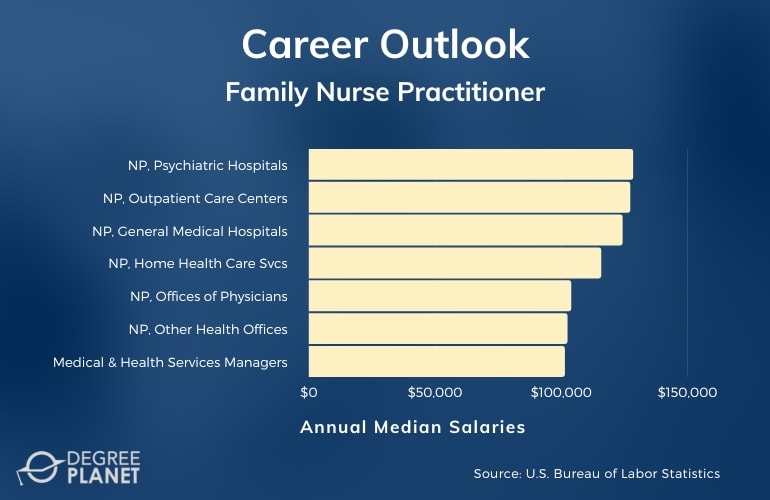
If you’re interested in becoming a family nurse practitioner, it’s necessary to have an active RN license, to complete a certification exam, and to obtain state licensure. An FNP program can help you qualify for certification and licensure.
According to the Bureau of Labor Statistics, the median annual salary for nurse practitioners is $120,680, but salaries can differ depending on level of experience and education and geographic location.
| Careers | Annual Median Salaries |
| Nurse Practitioners, Psychiatric and Substance Abuse Hospitals | $128,360 |
| Nurse Practitioners, Outpatient Care Centers | $127,230 |
| Nurse Practitioners, General Medical and Surgical Hospitals | $124,200 |
| Nurse Practitioners, Home Health Care Services | $115,730 |
| Nurse Practitioners, Offices of Physicians | $103,850 |
| Nurse Practitioners, Offices of Other Health Practitioners | $102,380 |
| Medical and Health Services Managers | $101,340 |
| Registered Nurses | $77,600 |
| Postsecondary Nursing Instructors and Teachers | $77,440 |
| Social and Community Service Managers | $74,000 |
FNPs can work in several work environments, such as hospitals, private practices, and outpatient care facilities. Once an individual earns the proper education and licensure to be a nurse practitioner, they may choose to specialize in treating specific populations.
Editorial Listing ShortCode:
Family nurse practitioners have a more broad range of responsibilities compared to some other specialized nurse practitioners. Experienced FNPs may also pursue leadership roles in healthcare facilities. Some states even allow nurse practitioners to open their own practices.
Family Nurse Practitioner MSN Curriculum & Courses

The curriculum of MSN FNP online programs explores a wide variety of topics that prepares you to assess, diagnose, and treat various illnesses of communities and patients across the lifespan.
Some common courses included in online family nurse practitioner programs include:
- Family and Community Primary Care Assessment: You’ll explore advanced skills for assessing family members across the lifespan through practice, theory, and research to maximize safe, comprehensive care.
- Primary Care for Children: This course focuses on studying primary health care for children and how to assess and manage various illnesses in pediatrics.
- Management of Acute Illnesses: You’ll explore assessment and management methods for acute illnesses in primary care settings.
- Health Promotion and Maintenance: The main focus of this course is to teach you how to develop health promotion and prevention strategies.
- Advanced Practice Nursing Ethical Concepts: You’ll review and learn ethical concepts that are essential to advanced practice nursing roles in order to address ethical issues in the field.
- Advanced Pharmacology: This course explores advanced topics in pharmacological management to increase your knowledge in pharmacology across the lifespan.
- Advanced Pathophysiology: You’ll learn how to analyze, assess, and apply human responses to various pathophysiological conditions.
- Advanced Nurse Practitioner Theoretical Foundations: You’ll analyze critical theories and skills in order to use multidisciplinary models in the advanced nurse practitioner role.
- Policy, Politics, and Advocacy in Healthcare: This course explores important stakeholders as well as various policies, politics, and advocacy methods in healthcare.
- Role Development and Clinical Leadership: You’ll learn about the various roles that APRNs may hold and how to become a leader and collaborator in the field.
Some of the main focuses of an FNP program include role development, illness prevention, and management of health promotion.
How to Become a Family Nurse Practitioner

The path to becoming a family nurse practitioner can depend on where you’re currently at in your educational journey.
Before pursuing a masters in nursing with a specialization in family nurse practitioner, it’s required to first have a bachelors degree in nursing and an active RN license. If you have a bachelor’s degree in another field, you may have the opportunity to pursue an accelerated direct-entry MSN program.
Some of the key steps to becoming an FNP include:
- Earn a Bachelor of Science in Nursing (BSN) from an accredited institution
- Pass the National Council Licensure Examination for Registered Nurses (NCLEX-RN)
- Obtain registered nurse (RN) licensure according to state requirements
- Enroll in an accredited Master of Science in Nursing (MSN) program specializing in FNP
- Pass an FNP certification exam
- Obtain FNP licensure according to state requirements
Some MSN FNP programs may require registered nursing professionals to gain field experience before being admitted into the program. Once enrolled, MSN FNP students complete coursework requirements and a defined number of clinical hours.
FNP programs are designed to help prepare you to sit for an FNP certification exam and enter the workforce. Obtaining state licensure is one of the final steps you take to become an FNP. Licensure requirements vary by state. You can research specific requirements according to the state board of nursing where you intend on working.
MSN FNP Programs Online Admissions Requirements

Here are some common admission requirements for MSN FNP programs:
- Bachelor’s degree from an accredited nursing program
- Official transcripts
- Curriculum vitae or resume
- Active RN license
You may be asked to submit any official transcripts you have to show what coursework and clinical hours you’ve already completed. Many programs for FNP ask for a curriculum vitae or current resume to understand what skills and knowledge you have in the field.
Nursing Practitioner Online Programs Accreditation

If you want to work as a nurse practitioner, it’s essential to choose a school that holds regional accreditation. Regional accrediting organizations require colleges and universities to meet quality education standards.
Editorial Listing ShortCode:
Earning your degree from a school with regional accreditation can play a part in meeting educational requirements for licensure. Overall, attending a regionally accredited school can your employment opportunities, your financial aid opportunities, and your credit transferability. In addition, nursing programs can also pursue programmatic accreditation.
CCNE Accreditation
The Commission on Collegiate Nursing Education (CCNE) is a programmatic accreditation agency that specializes in accrediting nursing programs at the baccalaureate and graduate level. The CCNE is recognized as a national accreditation agency by the US Secretary of Education.
Attending a nursing program accredited by the CCNE ensures that your program is meeting proper education requirements for the nursing field. Plus, when it comes to state licensure, state boards recognize and often require MSN degrees that are CCNE accredited.
Financial Aid and Scholarships

You can apply for financial aid and scholarships to help pay for tuition and other college expenses. Financial aid can be offered at both the state and federal level. Eligibility requirements can differ between states, but you can find out if you’re eligible for federal aid by submitting the Free Application for Federal Student Aid (FAFSA).
Scholarships are monetary awards that can be given out for various reasons. For instance, they may be awarded to individuals based on specific interests, academic or athletic merit, or field of study. Some scholarships have simple application processes that many students can apply for.
What Is an FNP?

A family nurse practitioner (FNP) is a type of nurse practitioner who specializes in family primary care. Family nurse practitioners can assess, diagnose, and manage acute and chronic illnesses of patients at all ages. They’re also responsible for educating patients on illness prevention through health promotion strategies.
A licensed FNP is able to provide a wide variety of services to patients, such as conducting physical exams, administering medication, and developing treatment plans.
What Can You Do with a Family Nurse Practitioner Degree?

An FNP degree is designed to prepare graduates to pursue certification as family nurse practitioners. Family nurse practitioners are able to work directly with patients at all ages, from children to aging adults. These professionals might also work as consultants for health promotion and other services based upon their area of expertise.
They can work in several different types of healthcare facilities, such as private practices, urgent care centers, public health departments, and women’s health facilities. According to the Bureau of Labor Statistics, most FNPs are employed by offices of physicians. They can also work in hospitals, in outpatient care centers, or for educational services.
What Does a Family Nurse Practitioner Do?
Due to the broad range of services FNPs are able to offer, some of their responsibilities are similar to those of medical doctors. FNPs can order and perform diagnostic tests, diagnose health problems, prescribe medicine, and conduct research.
Family nurse practitioners are trained to evaluate patients across the lifespan to provide primary and specialty care services. They also coordinate with other healthcare professionals to improve patient and public health. FNPs may seek additional certification to specialize in a specific sector, such as oncology or pain management.
Are Family Nurse Practitioners in Demand?

Nurse practitioners are in high demand. According to the Bureau of Labor Statistics, nurse practitioner roles are projected to have 46% job growth over the next decade. This is much faster than average compared to all other occupations.
Editorial Listing ShortCode:
The demand for nurse practitioners is expected to grow due to professionals exiting the field as well as an increase in healthcare needs from the aging population of the baby-boom generation. Family nurse practitioners will be needed to assess, manage, and treat patients who develop complex acute and chronic conditions.
How Long Is a Family Nurse Practitioner Program Online?

Most MSN FNP programs can be completed between 1 year and 2 years. For instance, a 36 credit hour online FNP program may take as little as 1 year to complete if you study full-time, including during the summer.
A thesis requirement can add on an extra semester or more to complete the program, but a thesis is not always required for nursing programs. Studying part-time can also extend your time to completion.
What’s the Difference Between an FNP vs. NP?
A family nurse practitioner (FNP) is a type of nurse practitioner (NP).
| Family Nurse Practitioner (FNP) | Nurse Practitioner (NP) |
|
|
FNPs have the ability to assess and manage patients of all ages, whereas nurse practitioners typically choose a specific population to work with. Since FNPs work with patients across the lifespan, their responsibilities tend to be broader than those of NPs.
What’s the Difference Between an ACNP vs. FNP?
A family nurse practitioner (FNP) and acute care nurse practitioner (ACNP) are both nurse practitioner specialties, but here are some key differences between the two.
| Family Nurse Practitioner (FNP) | Acute Care Nurse Practitioner (ACNP) |
|
|
An ACNP specializes in working with patients in critical condition due to acute illnesses, while an FNP cares for patients with acute and chronic illnesses.
What’s the Difference Between DNP vs. FNP Online Programs?
FNP online programs can be studied as part of a Master of Science in Nursing (MSN) or a Doctor of Nursing Practice (DNP). Here are some of the differences between FNPs and DNPs.
| Family Nurse Practitioner (FNP) | Doctor of Nursing Practice (DNP) |
|
|
DNPs are doctoral APRN programs that offer a number of specialties, including NP concentrations. A DNP may also be pursued by current FNPs who wish to advance their leadership abilities and qualifications. In fact, a growing number of universities offer on-campus or online DNP in Leadership programs for nurses interested in entering leadership positions.
Is an Online Family Nurse Practitioner Program Worth It?

Yes, an online family nurse practitioner program is worth it for many students. It can help registered nurses advance their career and prepare for FNP certification and licensure.
Editorial Listing ShortCode:
If you want to work directly with patients to provide primary care across the lifespan, then being a family nurse practitioner could be a rewarding career. Nurse practitioner roles are also expected to experience explosive job growth over the next decade. According to the Bureau of Labor Statistics, nurse practitioner positions are expected to have 46% job growth over the next ten years.
Universities Offering Online MSN in Family Nurse Practitioner Degree Programs
Methodology: The following school list is in alphabetical order. To be included, a college or university must be regionally accredited and offer degree programs online or in a hybrid format.
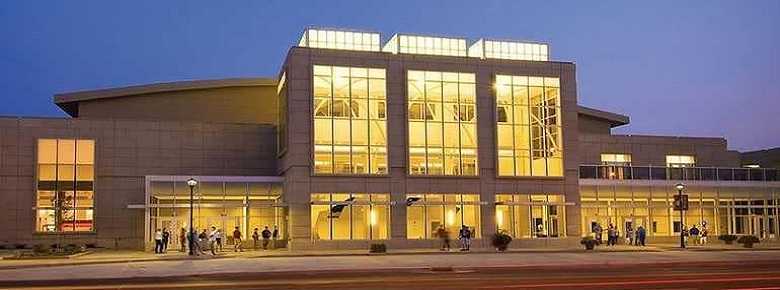
Bradley University’s online MSN-FNP program has no on-campus residency requirements and allows students to complete clinicals locally. The curriculum seeks to prepare students for ANCC and AANP certification exams. The RN-to-MSN-FNP track requires 59 credit hours, and the BSN-to-MSN-FNP requires 50 credit hours.
Bradley University is accredited by the Higher Learning Commission.

Carlow University offers a Master of Science in Nursing—Family Nurse Practitioner program. It is available at three different campus locations, and most coursework is online. Students are required to come to campus twice a month in the evenings and must also complete 600 clinical hours.
Carlow University is accredited by the Middle States Commission on Higher Education.

Carson-Newman University offers an online Master of Science in Nursing—Family Nurse Practitioner program. It does require one on-campus residency that it is 3 days long and a clinical practicum that may be completed locally. Classes are small and taught by experienced nurse practitioners. Potential courses include Advanced Pharmacology, Advanced Health Assessment, and Research Methods and Design in Nursing.
Carson-Newman University is accredited by the Southern Association of Colleges and Schools Commission on Colleges.

Drexel University offers a Master of Science in Nursing FNP online program. Graduates are eligible to take either the AANP or ANCC Family Nurse Practitioner Certification Exam. While the program is mostly online, it does include multiple on-campus intensives. The program also has a clinical requirement, and students are responsible for finding their own sites.
Drexel University is accredited by the Middle States Commission on Higher Education.

Duquesne University’s online MSN-FNP program aims to teach how to care for patients across the lifespan. GRE scores are not needed to apply, and there are three start dates offered each year. In previous years, the program’s graduates have had a 100% pass rate on the AANPCB Family Nurse Practitioner certification exam.
Duquesne University is accredited by the Middle States Commission on Higher Education.

Fairleigh Dickinson University’s MSN-FNP program typically takes 3 to 5 years to complete. Didactic courses are each 8 weeks long, while practicum courses are 15 to 16 weeks long. Potential courses include Advanced Pathophysiology, Advanced Health Assessment, Advanced Pharmacology, and Family Systems. The program requires 650 clinical hours.
Fairleigh Dickinson University is accredited by the Middle States Commission on Higher Education.
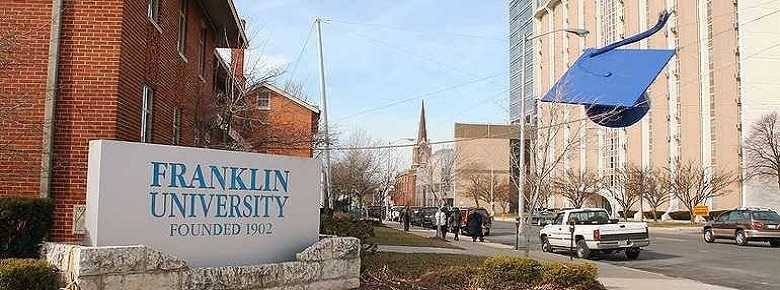
Franklin University offers an MSN-FNP degree that can be earned online. The program requires 41 credit hours and can typically be completed in 27 months. Potential courses include Evidence Based Practice and Quality Improvement, Diagnostic Methods for the Nurse Practitioner, Health Policy, and Management of Multidimensional Health.
Franklin University is accredited by the Higher Learning Commission.
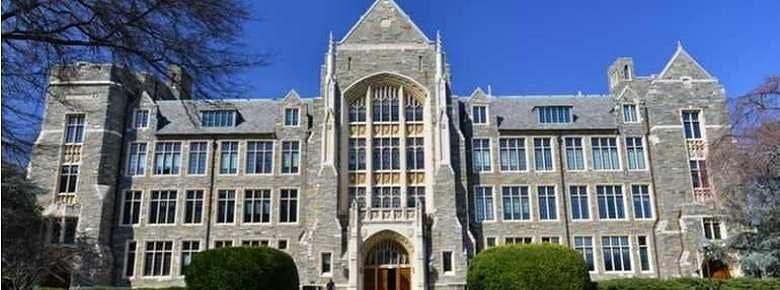
Georgetown University offers an MSN—Family Nurse Practitioner online program. Students in the program are required to complete in-person clinical intensives and online coursework with both synchronous and asynchronous elements. The program requires the completion of 44 credits, including 650 clinical hours. It is designed to be completed in 27 months, or seven terms.
Georgetown University is accredited by the Middle States Commission on Higher

Georgia College & State University offers a Master of Science in Nursing with a Family Nurse Practitioner concentration. The program can be completed mostly online, with occasional visits to campus. Clinical hours must be completed within the state of Georgia. New students can start the program every summer.
Georgia College & State University is accredited by the Southern Association of Colleges and Schools Commission on Colleges.

Gonzaga University offers an MSN with an FNP track. The program features flexible online courses but does require six on-campus immersions and 660 clinical hours. The curriculum teaches a holistic approach to patient care. Potential courses include Information Technology and Data Management, Theoretical Foundations for Healthcare Improvement, and Evidence-Based Practice for Quality and Safety. Each course is 8 weeks long.
Gonzaga University is accredited by the Northwest Commission on Colleges and Universities.

Grand Canyon University offers an MSN-FNP degree that can be earned online. The program requires the completion of 53 credits, and each course is 8 weeks long.
Potential courses include Organizational Leadership and Informatics, Advanced Physiology and Pathophysiology, and Translational Research and Population Health. The program does require some on-campus experiences, as well as a clinical practicum that may be completed locally.
Grand Canyon University is accredited by the Higher Learning Commission.

La Salle University’s online MSN-FNP degree requires 45 credit hours and can typically be completed in 2 to 3 years. This flexible program features multiple start dates each year to accommodate working professionals. Potential courses include Nursing Research for Evidence-Based Practice, Advanced Pathophysiology, and Advanced Pharmacology.
La Salle University is accredited by the Middle States Commission on Higher Education.
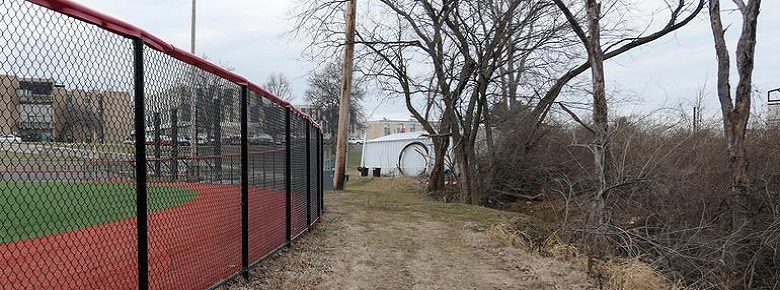
Maryville University offers an online MSN-FNP program that requires no campus visits and allows clinical hours to be completed locally. The program teaches a holistic approach to healthcare. Potential courses include Theoretical Foundations of Nursing Practice, Evidence-Based Practice in Nursing, and Health Care Policy.
Maryville University is accredited by the Higher Learning Commission.

Ohio University’s online Master of Science in Nursing program aims to prepare students for AANP and ANCC exams and help them become certified family nurse practitioners. The program requires the completion of 37 credit hours, including 500 clinical hours, and can typically be finished in 5 semesters.
Ohio University is accredited by the Higher Learning Commission.

Regis College MSN-FNP program allows students to complete coursework 100% online. The degree can typically be completed in 2 to 3 years. The program’s graduates currently have a 92% pass rate on certification exams. The program allows RNs with associate degrees or bachelor’s degrees to apply.
Regis College is accredited by the New England Commission of Higher Education.
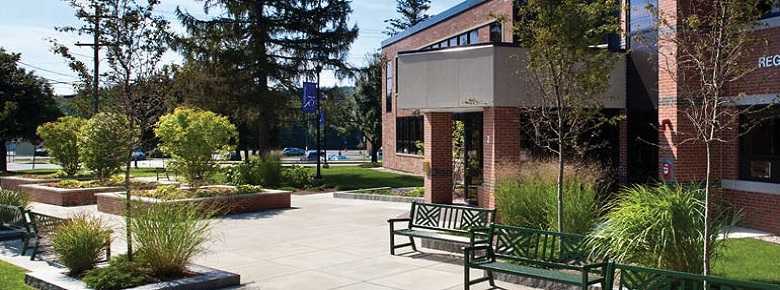
Rivier University’s MSN—Family Nurse Practitioner program is available online with some on-campus intensives. The program requires the completion of 36 to 49 credit hours and typically takes 3 to 5 years to complete. Each course is 14 weeks long. Potential courses include Advanced Pathophysiology, Evidence-Based Practice in Nursing and Healthcare, and Biostatistics for Health Sciences.
Rivier University is accredited by the New England Commission of Higher Education, Inc.

Sacred Heart University offers an online MSN—Family Nurse Practitioner degree program. Clinical hours may be completed locally, and there are no on-campus requirements. The program can typically be finished in 3 years, and it offers three start dates each year. The curriculum is designed to prepare students for AANP and ANCC exams.
Sacred Heart University is accredited by the New England Commission of Higher Education.
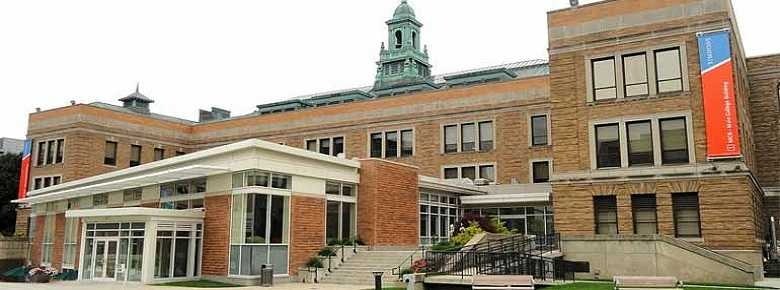
Simmons University offers an online MSN-FNP program that is designed for registered nurses who already have BSN degrees. Online courses at Simmons include live meetings, but the lectures are recorded so that students can access them according to their own schedules. Each student partners with a clinical placement specialist to help them find an appropriate site locally.
Simmons University is accredited by the New England Commission of Higher Education.
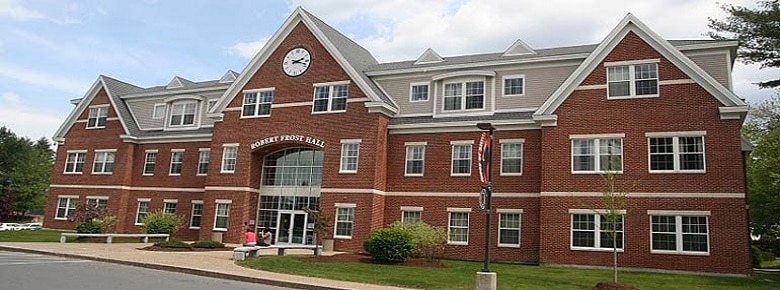
Southern New Hampshire University offers an online MSN-FNP program that can potentially be completed in 2 years of full-time study. The program requires in-person immersion experiences and 650 clinical practicum hours. SNHU’s online courses have no set meeting times, and students have access to course materials all day, every day.
SNHU is accredited by the New England Commission on Higher Education.

St. Thomas University’s online MSN-FNP program requires the completion of 47 credit hours and can potentially be finished in 18 months. Courses are 6 or 7 weeks long, and there are six start dates every year. Coursework includes Advanced Clinical Pharmacology, Influencing Health Policy, and Diversity in Advanced Health Practice.
St. Thomas University is accredited by the Southern Association of Colleges and Schools Commission on Colleges.

The University of Cincinnati offers an MSN Family Nurse Practitioner online degree program. This 51 credit program has consistently had certification exam pass rates above 95%. UC’s online courses are asynchronous, and the program requires no campus visits. There are three start dates every year, and students can typically graduate in 2 years.
The University of Cincinnati is accredited by the Higher Learning Commission.
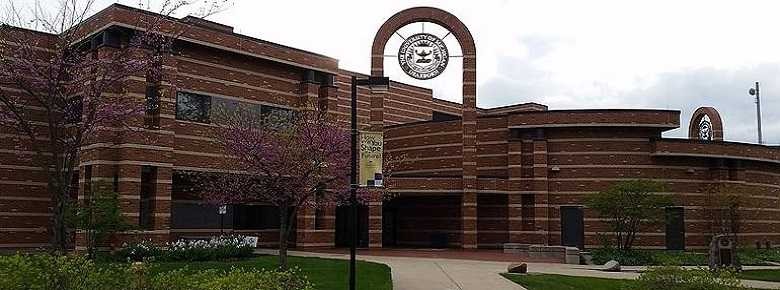
The University of Michigan offers an online MSN—Primary Care Family Nurse Practitioner program. It requires the completion of 55 credits and typically takes 2 to 3 years to complete. Students are required to come to campus for 3 days each term to connect with faculty and classmates and participate in in-person learning experiences.
The University of Michigan is accredited by the Higher Learning Commission of North Central Association of Colleges and Schools.

The University of Phoenix offers a Master of Nursing—Family Nurse Practitioner degree program. It can be completed mostly online but does require one residency that is 5 days long. Students can potentially graduate in 30 months. Each course is 8 weeks long, and students usually take six courses per year, one at a time.
The University of Phoenix is accredited by the Higher Learning Commission.

The University of Texas—Arlington offers an MSN—Family Nurse Practitioner online degree program. It requires the completion of 46 credit hours and can typically be finished in 3 years. Clinical experiences may be completed locally. Potential courses include Exploration of Science and Theories for Nursing, Advanced Pathophysiology, and Advanced Pharmacology.
The University of Texas at Arlington is accredited by the Southern Association of Colleges and Schools Commission on Colleges.

The University of West Florida offers an MSN-FNP online degree program. It requires the completion of 45 credit hours, including 600 direct patient care hours. Courses are 8 or 16 weeks long, and students can usually graduate in 27 to 30 months. The curriculum seeks to prepare students for ANCC and AANP certification exams.
The University of West Florida is accredited by the Southern Association of Colleges and Schools Commission on Colleges.
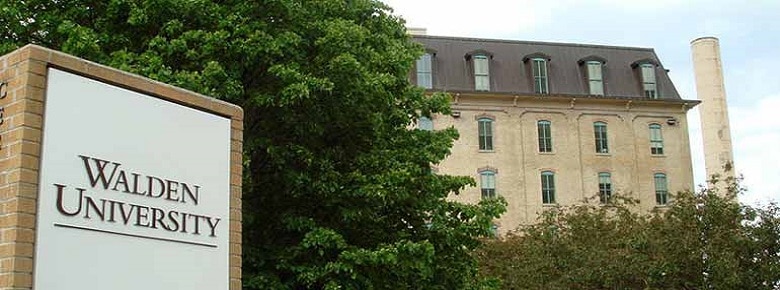
Walden University’s MSN program has an RN-to-FNP track and a BSN-to-FNP track. Dedicated support services are available to help students find practicum placements. Coursework is 100% online but does include virtual meetings and discussions with faculty and classmates. The curriculum emphasizes positive social change in healthcare.
Walden is accredited by the Higher Learning Commission.

West Coast University’s FNP degree program includes a mix of on-site and online learning. There are multiple start dates every year, and there are different pacing options to accommodate working professionals. WCU has an RN-to-FNP track and a BSN-to-FNP track, as well as a post-master’s FNP certificate for those with an MSN in a different specialization.
West Coast University is accredited by WASC Senior College of University Commission.

Western Governors University offers an online BSN-to-MSN Family Nurse Practitioner program that allows students to study according to their own schedules. Students in the program must participate in a virtual skills workshop and a 650 hour clinical internship. Each term is 6 months long, and the degree typically takes 2.5 years to finish.
Western Governors University is accredited by the Northwest Commission on Colleges and Universities.

Wilkes University offers an MSN-FNP online degree program. Wilkes provides support in finding a clinical placement, and graduates have consistently had high pass rates on board exams. Potential courses include Diagnostic Reasoning for Nurse Practitioners, Advanced Pharmacology, and Rural and Underserved Populations.
Wilkes University is accredited by the Middle States Association of Colleges and Schools.

Youngstown State University’s Family Nurse Practitioner MSN program requires the completion of 53 credit hours. Courses are available online. Potential courses include Healthcare Issues and Trends, Theoretical Foundations in Science and Research, Advanced Pathophysiology, and Advanced Diagnostics and Technologies. To qualify, applicants must have work experience in nursing within the past three years.
Youngstown State University is accredited by the Higher Learning Commission.
Getting Your MSN in Family Nurse Practitioner Online

If you want to work directly with patients at every age level, you might consider an online family nurse practitioner degree. This is a strategic career option for registered nurses who want to expand upon their responsibilities in the field. For nurses who already have a masters degree in nursing, a growing number of universities now offer an online post master’s FNP certificate as well as degree programs.
MSN FNP programs prepare nursing professionals to work with children, adolescents, adults, and aging adults. They also equip RNs with essential skills and knowledge to sit for nurse practitioner certification exams and obtain state licensure.
You can begin your journey toward becoming an FNP by researching accredited family nurse practitioner programs online that best support your interests.

